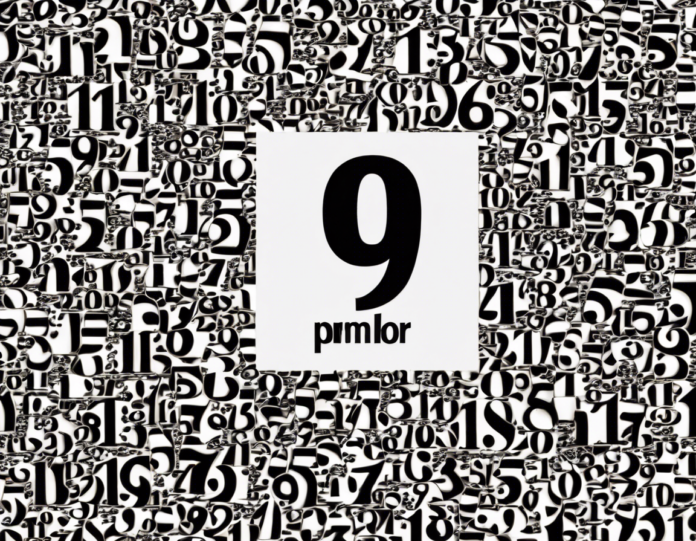Have you ever been taught that 91 is a prime number? Many of us have learned this at some point during our math education, but the truth is, 91 is not a prime number. In this article, we will dive deep into the world of prime numbers, explore what makes a number prime, and specifically focus on the case of 91 to understand why it doesn't fit the criteria.
What are Prime Numbers?
Definition of Prime Numbers
Prime numbers are integers greater than 1 that have no divisors other than 1 and themselves. In simpler terms, a prime number is a number that is only divisible by 1 and itself, and it does not have any other factors.
Examples of Prime Numbers
Some examples of prime numbers include 2, 3, 5, 7, 11, 13, 17, 19, and so on. These numbers remain indivisible except by 1 and the number itself.
Infinitude of Prime Numbers
One of the fundamental theorems of arithmetic states that there are infinitely many prime numbers. This means that the list of prime numbers goes on forever, with no end in sight.
Why is 91 NOT a Prime Number?
Factors of 91
To determine if a number is prime, we need to check its factors. The factors of 91 are 1, 7, 13, and 91. Unlike prime numbers, 91 has factors other than 1 and itself, namely 7 and 13. This disqualifies 91 from being classified as a prime number.
Composite Numbers
Numbers that have factors other than 1 and themselves are known as composite numbers. 91 falls into this category since it can be expressed as the product of 7 and 13. Composite numbers can be broken down into smaller factors, unlike prime numbers which remain indivisible.
Square Root Test
Another way to determine if a number is prime is to check its divisibility by numbers up to its square root. For 91, its square root is approximately 9.54. By taking the numbers 2, 3, 5, 7, and 9, we can see that 91 is divisible by 7 and 13, further confirming its status as a composite number.
The Mystery of Misconception
Common Misconceptions
The confusion around 91 being a prime number likely stems from errors in educational materials or misunderstandings during the learning process. It's crucial to correct such misconceptions to ensure a clear understanding of prime numbers and their properties.
Educational Revisions
Mathematics curriculums should strive to provide accurate information and clarify any misconceptions related to prime numbers. By highlighting examples like 91 and explaining why they are not prime, educators can help students build a stronger foundation in number theory.
Frequently Asked Questions (FAQs)
1. Is 0 a prime number?
No, 0 is not a prime number. Prime numbers are defined as integers greater than 1 with exactly two factors, which does not apply to 0.
2. Can a number be both prime and composite?
No, a number cannot be both prime and composite. Prime numbers have only two factors, while composite numbers have more than two factors.
3. What is the largest prime number known?
As of now, the largest known prime number is 2^82,589,933 − 1, a number with over 24 million digits.
4. Are negative numbers considered prime?
Prime numbers are defined for positive integers. Negative numbers are not considered prime since they do not fulfill the criteria of having exactly two factors.
5. Can a decimal or fraction be a prime number?
Prime numbers are specifically defined for integers. Decimals or fractions cannot be prime numbers as the concept of prime numbers applies to whole numbers only.
6. How are prime numbers used in cryptography?
Prime numbers play a crucial role in cryptography, especially in creating secure encryption algorithms such as RSA, where the difficulty of factoring large prime numbers ensures the security of encrypted data.
7. Is there a pattern to prime numbers?
While prime numbers do not follow a predictable pattern, there are mathematical conjectures and theorems, such as the Prime Number Theorem, that provide insights into the distribution of prime numbers.
By understanding the fundamentals of prime numbers and clarifying misconceptions such as the case of 91, we can strengthen our knowledge of number theory and appreciate the beauty and complexity of mathematics. Remember, when in doubt, always double-check the factors before labeling a number as prime!

